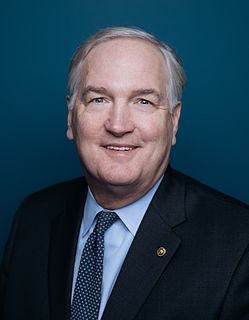A Quote by Lynn Good
There are no coal plants on the drawing board for Duke, which leaves us with gas, renewables, and nuclear.
Related Quotes
Letting the perfect be the enemy of the good is one of the reasons we have a coal-dependent infrastructure, with the resulting environmental impact that all of us can see. I suspect environmentalists, through their opposition of nuclear power, have caused more coal plants to be built than anybody. And those coal plants have emitted more radioactive material from the coal than any nuclear accident would have.
Historically, the United States has had a wonderful energy policy. We're blessed with a diversity of resources. We have oil. We have gas. We have coal. We have nuclear. And renewables. And as a result, one of our biggest competitive advantages has been affordable energy. You need a strong economy and you need affordable energy to fuel that economy.
Variable but forecastable renewables (wind and solar cells) are very reliable when integrated with each other, existing supplies and demand. For example, three German states were more than 30 percent wind-powered in 2007 - and more than 100 percent in some months. Mostly renewable power generally needs less backup than utilities already bought to combat big coal and nuclear plants' intermittence.
The park lies directly downwind from a slew of coal plants. Virtually all of the major contaminants in the local air and water are direct results of coal emissions. Coal produces ozone, which kills trees. Coal produces sulfates, which kill fish. No other park in the country has more ozone or sulfates than Shenandoah National Park.
Coal ash gets far less attention than toxic and greenhouse gas emissions from power plants, but it has created environmental and health problems - every major river in the Southeast has at least one coal ash pond - and continuing legal troubles and large cleanup costs for the authority and other utilities.































